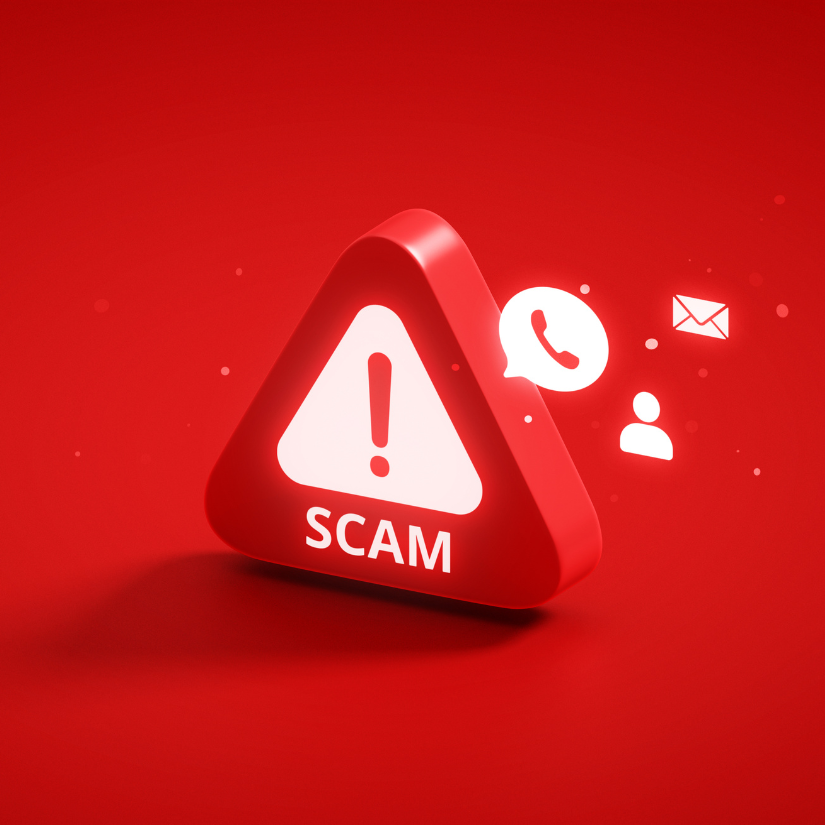Protect Yourself from Scam Calls
Wednesday July 16, 2025
By Crystal DelPrete, Customer Experience Professional

It happened to me recently. I was making dinner when my phone rang. The caller ID said it was the Social Security Administration and the voice on the other end sounded urgent. They said there was a “problem with my Social Security number” and that I needed to take immediate action.
For a split second, my heart dropped. It sounded real. But then I remembered the training we receive at work – the same advice we give our customers every day. I hung up and that’s exactly what you should do too.
Scammers have found ways to make phone calls from anywhere in the world. They don’t care if your number is on the National Do Not Call Registry, they’ll call anyway. These calls are often automated messages known as robocalls, and if they’re trying to sell you something, they’re probably illegal. Worse, many are flat-out scams.
You might hear messages about:
- Suspicious activity on your Social Security number
- A missed court date or tax payment
- An expiring car warranty
- A limited time offer on debt relief or credit repair
They’ll try to scare you or pressure you into giving up personal information, sending money, or making payments via gift cards, apps, or cryptocurrency. Don’t do it. Hang up. Here are some steps you can take right now to help reduce these calls and protect yourself:
Utilize Telephone Features: If you have your landline telephone service through us, we can activate some telephone features that may help:
- Selective Call Rejection: allows certain numbers to be blocked
- Anonymous Call Rejection: blocks any call that has no caller ID
- Selective Call Acceptance: allows only certain numbers that you approve of calling you
Don’t Trust Caller ID: Scammers can spoof a telephone number, so it looks like the call is local or from a government agency. Just because the screen says “IRS” or a familiar area code doesn’t mean it’s real.
Never Share Personal Information: If someone calls out of the blue asking for your Social Security number, banking details, or credit card information…don’t give it. No legitimate company or agency will ask for this over the phone.
Report Scam Calls: Help others in our community by reporting scam calls to the FTC at DoNotCall.gov. These reports help federal agencies track and shut down illegal callers. Include:
- The phone number that received the call
- The number that showed on caller ID (even if you think it's fake)
- Any callback number or message details
- The time and date of the call
There have been times that scammers have pretended to be BTES.
These scammers pretend to be a BTES representative, and say your account is past due and that your electricity will be disconnected immediately unless you give your credit card information over the phone, purchase a prepaid gift card and give them that information, or bring cash to a location that is not the BTES office.
This is not how we operate, and we do not initiate calls to our customers requesting payments outside of our normal methods.
If you receive a suspicious call like this, hang up and call us directly to check your account status. Always use the phone number listed on your BTES bill (423-968-1526) or our official website.
Remember – if something doesn’t feel right, it probably isn’t.
Get the latest to your inbox!
Enter your email below.
